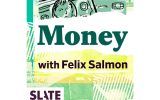Con artists beware! We are here to buck you up against their scams to steal from you.
There are far too many people around the world creating clever ways to separate you from your money. In most of these scenarios, the old saying, “If it sounds too good to be true, it probably isn’t,” rings true.
Many scams rely on the victim either being overly trusting or greedy, which makes healthy skepticism your best defense. If you receive a letter, phone call, or email saying that you’ve won a free vacation or a cash prize, or a distant relative has left you an inheritance or needs emergency cash sent to them in a foreign country, pause and read the fine print before you get excited.
Ayleen Alfonso, compliance and fraud manager at BrightStar Credit Union, offers some sound advice applicable to all situations:
“Trust your gut; it’s OK to be suspicious about a deal that is just a little too good to be true.”
Holiday Specials
With the holiday sale season upon us, it is important to pay close attention to emails promoting what may appear to be amazing deals. Before you click “buy” and provide credit card info, look closely at the website address. If it doesn’t look quite right—using a cursive font, perhaps with extra letters added—or you notice misspellings or typographical errors on the site, don’t take the bait. Open another window and do an organic search to double-check the retailer’s correct URL address, or simply call the retailer to verify the…













